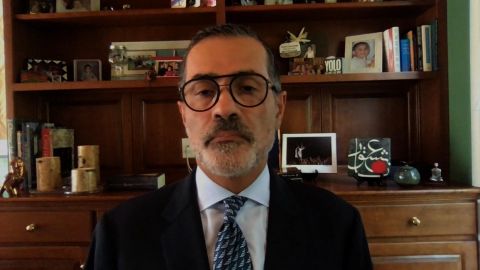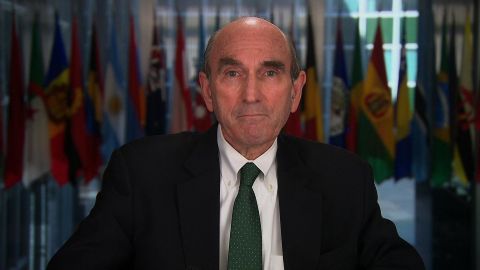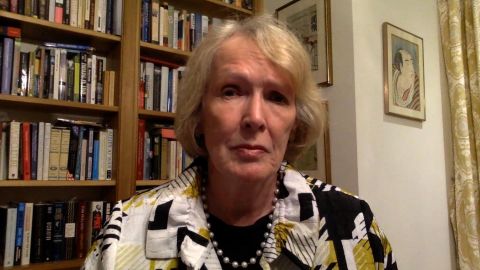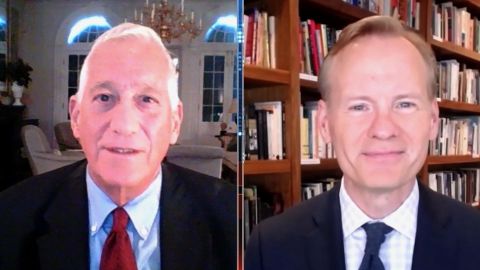Read Transcript EXPAND
CHRISTIANE AMANPOUR: One of the things that both allies and foes are all thinking is that his infection is a consequence of the chaotic handling of the epidemic, the pandemic as it struck America. How would you answer that and what would — again, would you say to nations, I know you say it would be ill-advised, but do you have any intel at the State Department or anything that them — you know, you may need to be sending some messages out? Is there any chatter as you will say in the intel and diplomatic world?
ELLIOTT ABRAMS, U.S. SPECIAL REPRESENTATIVE FOR VENEZUELA AND IRAN: I have seen nothing to that effect. I do think it’s because people recognize that the entire chain of command is completely intact and functioning. But, you know, the secretary of state was just in Europe as you know and is now in Tokyo. The secretary of defense was in Kuwait yesterday to meet the new emir. The air force, the navy are fully functional. So, I have not seen anything suggesting that any hostile power believes there is an opportunity here.
AMANPOUR: Yes. And I know you say the chain of command is intact and you’ve mentioned, you know, the military and the secretary of state, obviously. But, I mean, it’s pretty alarming that so many people in the White House have — you know, have contracted it, many in the National Security staff. In fact, we’ve even heard reports that the National Security staff, which you used to be amongst, I mean, the previous administration, are kind of not really being told what to do, who to contact, you know, contact tracing and all the rest of it, some senior Republican senators who have to make, you know, decisions on various issues have also contracted it. I want to ask you about Iran though because this is something that the president promised the United States, promised the people during his 2015, ’16 campaign, and that was to pull out of the JCPOA, the Iran nuclear deal and bring a better deal. Well, the better deal hasn’t happened and the president’s strategy of maximum pressure hasn’t delivered what he said it would deliver, like bringing them back to the table, et cetera. How do you judge that right now and do you think if the president is reelected or if there’s a President Biden that there needs to be a different tack to try to do what you want to do with Iran?
ABRAMS: I don’t think so. I think the maximum pressure campaign has had an enormous effect on Iran, you just look at their oil exports with the condition of their economy, look at the riyal, which has basically collapsed, the Iranian currency. I don’t think they can take four more years of this. So, I think it’s the president’s reelected or if there is a Biden administration, if they’re smart enough to do this, we’re at the moment where the Iranians will recognize because they can’t take four more years of this, they will be ready to enter into a negotiation.
About This Episode EXPAND
Christiane speaks with Elliott Abrams and Vali Nasr about national security. She also speaks with historian Margaret MacMillan about what this moment will mean in the future. Walter Isaacson speaks with John Dickerson about whether or not we expect too much of U.S. presidents.
LEARN MORE



